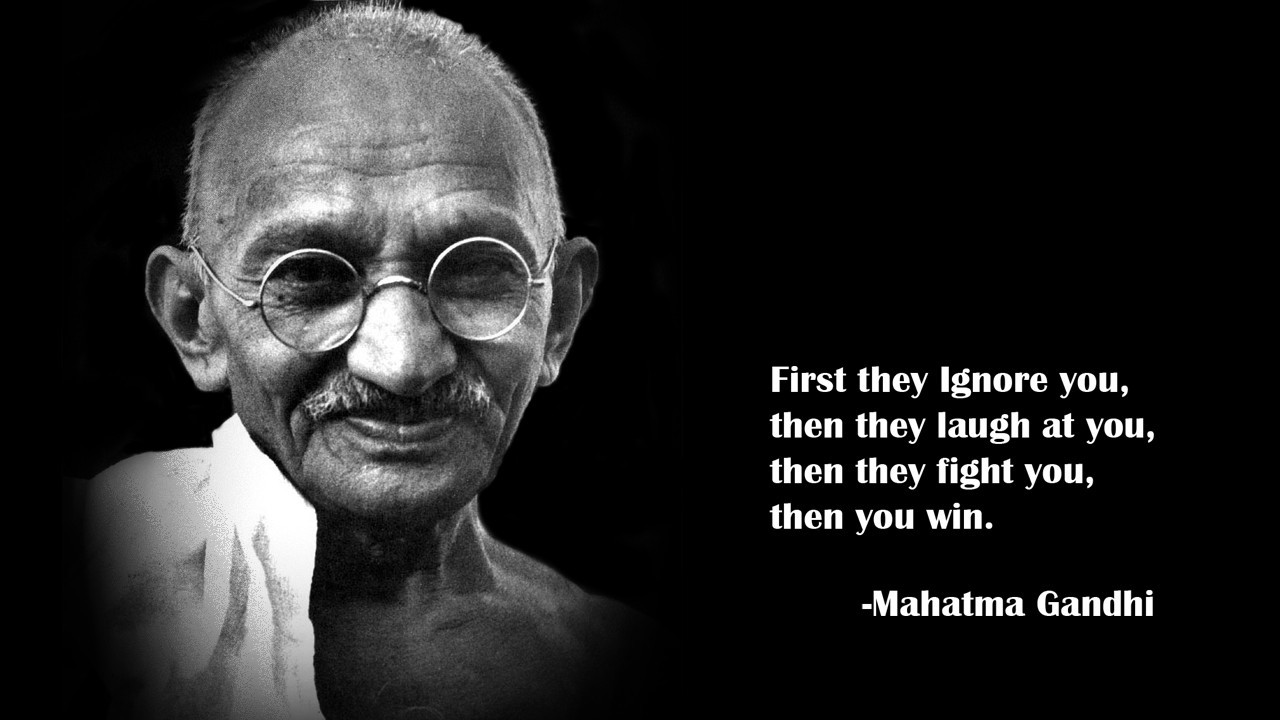
We can't be creative if we refuse to be confused. Change always starts with confusion."
- Margaret Wheatley
Don't fire until you see the whites of their eyes.
To keep the blade sharp, you have to periodically walk along it.
Sound familiar?
Risk means doing things that are unpredictable, taking chances, walking the wire without a net. We want the benefits that come from risk (new innovations, new policy solutions, the first place medal) but not the consequences of potential failure. When it comes to teams, bosses are increasingly becoming risk-adverse; new investments and new ideas aren't being supported as they could be. They're relying on more interns and contracts that can be let go of quickly if they mess up and no or little money lost.
What about those who do take risks, push the envelope, push buttons? There are lots of those, but if you look carefully they aren't so much about taking risks as they are confident in their ability to avoid or download risk to others. Look at the Senate Scandals; even now the likes of Duffy and Brazeau remain defiant. Look at any of the other political scandals across the country - nobody is saying they took a risk and it didn't pay off as they thought it would, they're denying risk at all, or placing the blame for failure on others.
Look at Lehman Brothers. Look at the polling industry. Hell, look at our democratic malaise. These folk aren't being bold or innovative; they're puffing up their plumage and trying to deflate criticism. It's a huge difference; more and more energy is being spent on image, not accomplishment. More and more blame is being placed on the staffer, the consumer, the voter. When people are blamed for inaccurate polling results instead of methodology, we have an emperor's cloak problem write large.

To fix this, leaders need to be willing to take risks - not the self-serving kind, but the policy risks that may not have precedent and will need to be tested through pilots, revisited and worked through various iterations to get them right. Look at the work Guardly is doing with Neighbourhood Watch as an example of what this looks like in practice.
Leaders need to equally be empowering, too - not looking for their team to fail so they can replace them with better people, but encouraging them to experiment and supporting them through the trial-and-error learning process. Failure should never be the end of the road - instead, it should be a stepping stone to perfection. What have we learned? What can we avoid in the future? What new horizons have been uncovered as we break down the walls of convention?
At the same time, teams and constituents need to be equally willing to work with leaders at all levels. We've got a bad habit in Canada of voting people and Parties out, rather than voting anything in. "I will undo stuff the last guy did that you don't like" isn't a "why" and it's not leadership, but it what we keep asking for. Ask you and you shall receive, etc.
"What I stand for" is vastly different from "what I stand against" but we seem to have mixed the two up in the same way that we forget that "talking to" (messaging) isn't the same process as "talking with" (communication).
Of course, communication isn't easy, nor is it common. Most Comms positions these days are focused on messaging rather than a back-and-forth flow involving understanding and compromise.
I'd argue that true communication is the biggest challenge we face, and face poorly given the impact it has on our lives. Communication requires all those soft skills we have trouble quantifying; empathy, lateral thinking, iterative thinking, design thinking. It demands us to put something on the table first, freely, without the certainty of receiving anything in return; it means having a bit of faith in what the person opposite can do, given the right supports along the way.
True communication is a scary concept, a step into the unknown, a leap of faith.
Which leads me to one last quote to tie this up in a bow:
Do one thing every day that scares you.



No comments:
Post a Comment